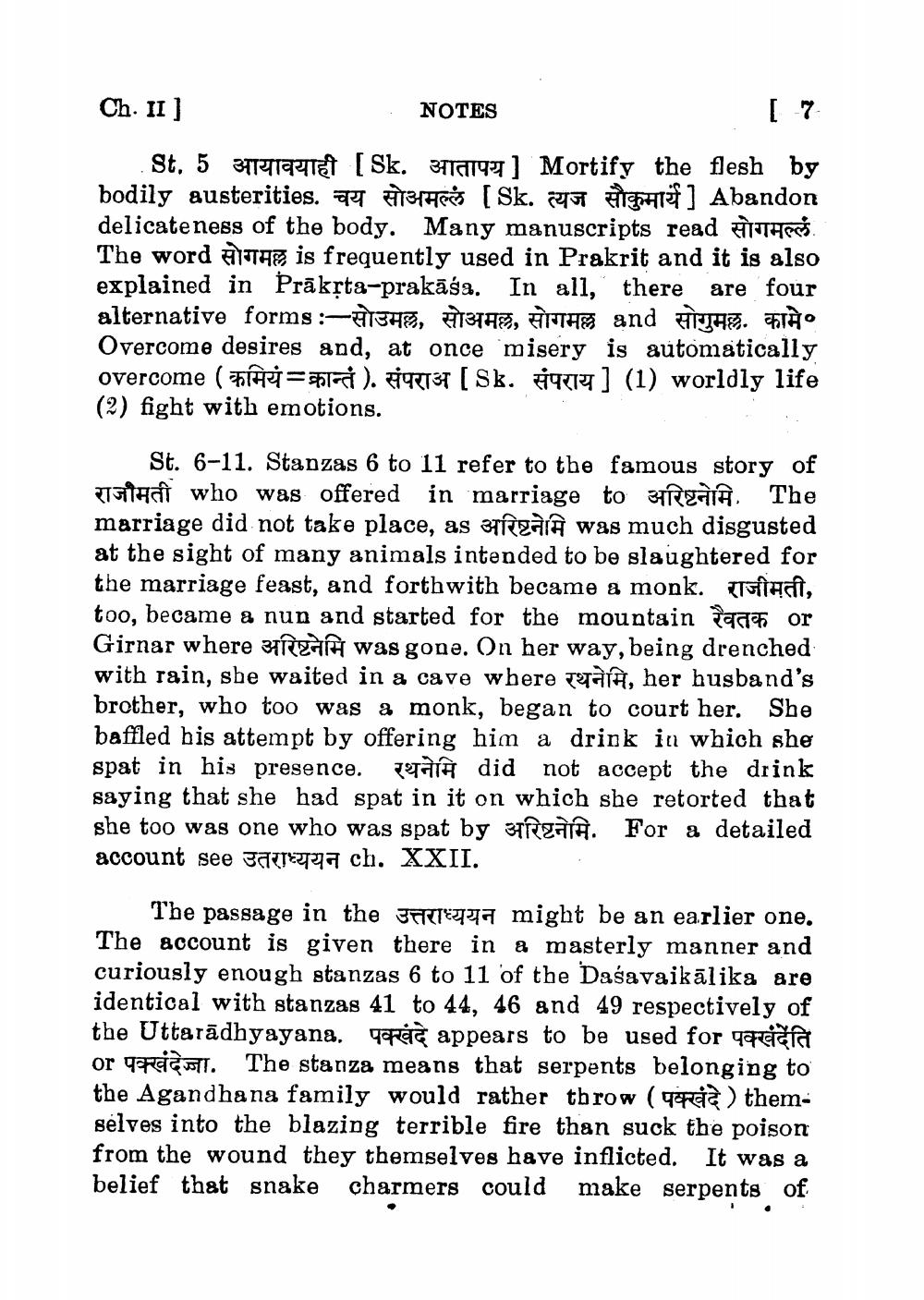________________
Ch. II]
[ 7
St. 5 आयावयाही [ Sk. आतापय ] Mortify the flesh by bodily austerities चय सोअमल्लं [ Sk. त्यज सौकुमार्य ] Abandon delicateness of the body. Many manuscripts read . The word is frequently used in Prakrit and it is also explained in Prakṛta-prakāśa. In all, there are four alternative forms : - सोउमल, सोअमल्ल, सोगमल्ल and सोगुमल्ल. कामे ० Overcome desires and, at once misery is automatically overcome (कमियं = क्रान्तं ). संपराअ [ Sk. संपराय ] ( 1 ) worldly life (2) fight with emotions.
NOTES
or
St. 6-11. Stanzas 6 to 11 refer to the famous story of राजौमती who was offered in marriage to अरिष्टनेमि, The marriage did not take place, as are was much disgusted at the sight of many animals intended to be slaughtered for the marriage feast, and forthwith became a monk. fìì, too, became a nun and started for the mountain Girnar where was gone. On her way, being drenched with rain, she waited in a cave where af, her husband's brother, who too was a monk, began to court her. She baffled his attempt by offering him a drink in which she spat in his presence. रथनेमि did not accept the drink saying that she had spat in it on which she retorted that she too was one who was spat by R. For a detailed account see a ch. XXII.
The passage in the might be an earlier one. The account is given there in a masterly manner and curiously enough stanzas 6 to 11 of the Daśavaikālika are identical with stanzas 41 to 44, 46 and 49 respectively of the Uttarādhyayana. पक्खंदे appears to be used for पक्खंदैति or . The stanza means that serpents belonging to the Agandhana family would rather throw (4) themselves into the blazing terrible fire than suck the poison from the wound they themselves have inflicted. It was a belief that snake charmers could make serpents of




